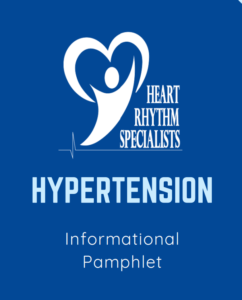What is Hypertension?
High blood pressure (hypertension) is a condition that occurs when the force of blood against artery walls is higher than normal. Hypertension is extremely common and often shows no symptoms, but it is very easy to detect with blood pressure readings. There are two types of hypertension: primary (unknown cause) and secondary (caused by an underlying condition).

How is Hypertension Diagnosed?
Hypertension is diagnosed when the patient shows consistently high blood pressure. To rule out underlying conditions, Dr. Yoo may conduct tests such as:
- urine test
- cholesterol screening and other blood tests
- electrocardiogram (ECG/EKG)
- ultrasound of heart or kidneys
Risk Factors include:
- older age
- family history of hypertension
- being overweight or obese
- not being physically active
- using tobacco
- too much salt (sodium) in diet
- too much potassium in diet
- drinking too much alcohol
- stress
- certain medications or drugs
Causes of Secondary Hypertension include:
- obstructive sleep apnea
- arrythmias
- kidney problems
- adrenal glands tumors
- thyroid problems
- congenital defects in blood vessels or heart
- certain endocrine tumors
- pregnancy
Symptoms of Hypertension
Most patients show no symptoms of hypertension, but sometimes the condition becomes severe enough to show symptoms such as:
- headaches
- shortness of breath
- nosebleeds
- flushing
- dizziness
- chest pain (angina)
- changes in vision
Treatments for Hypertension
Treatment may include:
- Regularly monitoring blood pressure
- medication(s)
- treatment of other underlying conditions and arrythmias
- heart-healthy diet with less salt
- regular exercise
- achieving and maintaining a healthy weight
- limiting alcohol intake
- reducing stress
Additional Resources
